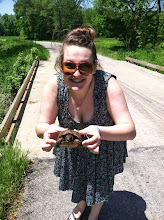
Composting is a great thing to do but remember there are some things that should NEVER be put in your compost:
Bread products: This includes cakes, pasta, and most baked goods. Put any of these items in your compost pile, and you've rolled out the welcome mat for unwanted pests.
Cooking oil: Smells like food to animal and insect visitors. It can also upset the compost's moisture balance.
Diseased plants: Trash them, instead. You don't want to transfer fungal or bacterial problems to whatever ends up growing in your finished compost.
Heavily coated or printed paper: This is a long list, including magazines, catalogs, printed cards, and most printed or metallic wrapping paper. Foils don't break down, and you don't need a bunch of exotic printing chemicals in your compost.
Human or animal feces: Too much of a health risk. This includes kitty litter. Waste and bedding from non-carnivorous pets should be fine.
Meat products: This includes bones, blood, fish, and animal fats. Another pest magnet.
Milk products: Refrain from composting milk, cheese, yogurt, and cream. While they'll certainly degrade, they are attractive to pests.
Rice: Cooked rice is unusually fertile breeding ground for the kinds of bacteria you don't want in your pile. Raw rice attracts varmints.
Sawdust: So tempting. But unless you know the wood it came from was untreated, stay away.
Stubborn garden plants: Dandelions, ivy, and kudzu are examples of plants or weeds which will probably regard your compost heap as a great place to grow, rather than decompose.
Used personal products: Tampons, diapers, and items soiled in human blood or fluids are a health risk.
Walnuts: These contain juglone, a natural aromatic compound toxic to some plants.
 Recycling is the way to go unless it is one of the following:
Recycling is the way to go unless it is one of the following: 
